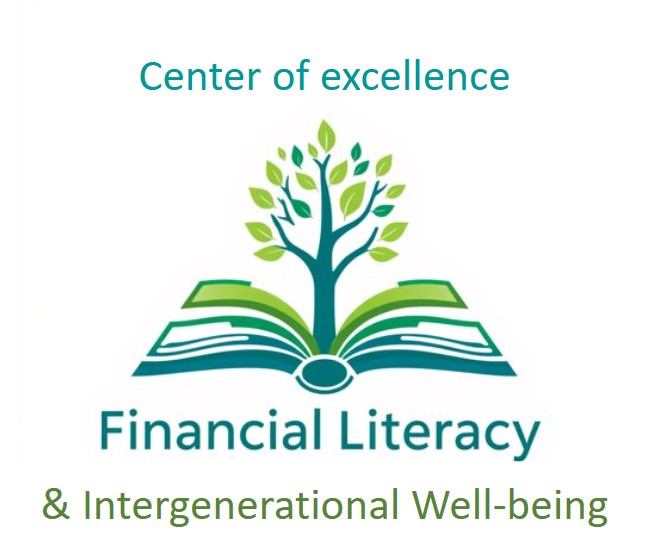Green Horizons: Enhancing Customer Satisfaction through Quality Experiences, Mediated by Green Perceived Value and Green City Image in Kota Lebong Tourism, Bengkulu Province
 Abstract Views:
374 times
Abstract Views:
374 times
 PDF Downloads:
319 times
PDF Downloads:
319 times
Abstract
Pupose: The objective of this research is to comprehensively analyze the relationship between experience quality and customer green satisfaction, as well as to investigate the mediating roles of green city image and green perceived value in the context of environmentally friendly tourist destinations.
Method:This study employs a quantitative-explanatory approach with the population of focus being all visitors to tourist attractions in Lebong City, Bengkulu Province. The exact size of this population cannot be determined. The total sample size for this study is 360 respondents. And analysed using SEM-PLS.
Result: The result of this study reveals experience quality influence green satisfaction, green city image, and green perceived value. Also, both green city image and green perceived value mediated the relationship between experience quality on green satisfaction.
Downloads
References
Adewumi, I. B., Usui, R., & Funck, C. (2019). Perceptions of multiple stakeholders about environmental issues at a nature-based tourism destination: The case of Yakushima Island, Japan. Environments, 6(8), 93.
Akgunn, A. E., Senturk, H. A., Keskin, H., & Onal, I. (2020). The relationships among nostalgic emotion, destination images and tourist behaviors: An empirical study of Istanbul. Journal of Destination Marketing & Management, 16, 100355.
Al‐Msallam, S. (2020). The impact of tourists' emotions on satisfaction and destination loyalty–an integrative moderated mediation model: tourists' experience in Switzerland. Journal of Hospitality and Tourism Insights, 3(5), 509-528.
Aliedan, M. M., Sobaih, A. E. E., & Elshaer, I. A. (2021). Influence of cities-based entertainment on tourist satisfaction: Mediating roles of destination image and experience quality. Sustainability, 13(19), 11086.
Alnawas, I., & Hemsley-Brown, J. (2019). Examining the key dimensions of customer experience quality in the hotel industry. Journal of Hospitality Marketing & Management, 28(7), 833-861.
Artmann, M., Kohler, M., Meinel, G., Gan, J., & Ioja, I. C. (2019). How smart growth and green infrastructure can mutually support each other—A conceptual framework for compact and green cities. Ecological Indicators, 96, 10-22.
Birendra, K. C., Dhungana, A., & Dangi, T. B. (2021). Tourism and the sustainable development goals: Stakeholders' perspectives from Nepal. Tourism Management Perspectives, 38, 100822.
Carvache-Franco, M., Alvarez-Risco, A., Carvache-Franco, O., Carvache-Franco, W., Estrada-
Merino, A., & Villalobos-Alvarez, D. (2022). Perceived value and its influence on satisfaction and loyalty in a coastal city: a study from Lima, Peru. Journal of Policy Research in Tourism, Leisure and Events, 14(2), 115-130.
Cerri, J., Testa, F., & Rizzi, F. (2018). The more I care, the less I will listen to you: How information, environmental concern and ethical production influence consumers' attitudes and the purchasing of sustainable products. Journal of Cleaner Production, 175, 343-353.
Chakraborty, B., Roy, S., Bera, A., Adhikary, P. P., Bera, B., Sengupta, D., ... & Shit, P. K. (2021). Cleaning the river Damodar (India): impact of COVID-19 lockdown on water quality and future rejuvenation strategies. Environment, Development and Sustainability, 23, 11975-11989.
Chan, C. S., Nozu, K., & Cheung, T. O. L. (2020). Tourism and natural disaster management process: perception of tourism stakeholders in the case of Kumamoto earthquake in Japan. Current Issues in Tourism, 23(15), 1864-1885.
Chang, H. T. (2018). Green City Vision, Strategy, and Planning. Green City Planning and Practices in Asian Cities: Sustainable Development and Smart Growth in Urban Environments, 19-38.
Chen, X., Cheng, Z. F., & Kim, G. B. (2020). Make it memorable: Tourism experience, fun, recommendation and revisit intentions of Chinese outbound tourists. Sustainability, 12(5), 1904.
Chen, Y.-S. (2010). The drivers of green brand equity: Green brand image, green satisfaction, and green trust. Journal of Business Ethics, 93(2), 307–319.
Chow, A. S., Ma, A. T., Wong, G. K., Lam, T. W., & Cheung, L. T. (2019). The impacts of place attachment on environmentally responsible behavioral intention and satisfaction of Chinese nature-based tourists. Sustainability, 11(20), 5585.
Confente, I., & Scarpi, D. (2021). Achieving environmentally responsible behavior for tourists and residents: A norm activation theory perspective. Journal of Travel Research, 60(6), 1196-1212.
Domínguez-Quintero, A. M., González-Rodríguez, M. R., & Paddison, B. (2020). The mediating role of experience quality on authenticity and satisfaction in the context of cultural-heritage tourism. Current Issues in Tourism, 23(2), 248-260.
Elkington, J. (1997). The triple bottom line. Environmental management: Readings and cases, 2, 49-66.
Elkington, J. (1998). Partnerships from cannibals with forks: The triple bottom line of 21st‐century business. Environmental quality management, 8(1), 37-51.
Gautam, V. (2020). Examining environmental friendly behaviors of tourists towards sustainable development. Journal of Environmental Management, 276, 111292.
Gelderman, C. J., Schijns, J., Lambrechts, W., & Vijgen, S. (2021). Green marketing as an environmental practice: The impact on green satisfaction and green loyalty in a business‐to‐business context. Business strategy and the environment, 30(4), 2061-2076.
Generowicz, A., Gronba-Chyła, A., Kulczycka, J., Harazin, P., Gaska, K., Ciuła, J., & Ocłoń, P. (2023). Life Cycle Assessment for the environmental impact assessment of a city’cleaning system. The case of Cracow (Poland). Journal of Cleaner Production, 382, 135184.
González-Rodríguez, M. R., Domínguez-Quintero, A. M., & Paddison, B. (2020). The direct and indirect influence of experience quality on satisfaction: the importance of emotions. Current Issues in Tourism, 23(22), 2779-2797.
Hair, J. F., Page, M., & Brunsveld, N. (2019). The Essentials of Business Research Methods (Fourth edition). London: Routledge.
Han, H. (2021). Consumer behavior and environmental sustainability in tourism and hospitality: A review of theories, concepts, and latest research. Journal of Sustainable Tourism, 29(7), 1021-1042.
Han, H. (2021). Consumer behavior and environmental sustainability in tourism and hospitality: A review of theories, concepts, and latest research. Journal of Sustainable Tourism, 29(7), 1021-1042.
He, X., Hu, D., Swanson, S. R., Su, L., & Chen, X. (2018). Destination perceptions, relationship quality, and tourist environmentally responsible behavior. Tourism management perspectives, 28, 93-104.
Hossain, M. S., Hossain, M. A., Al Masud, A., Islam, K. Z., Mostafa, M. G., & Hossain, M. T. (2023). The integrated power of gastronomic experience quality and accommodation experience to build tourists’ satisfaction, revisit intention, and word-of-mouth intention. Journal of Quality Assurance in Hospitality & Tourism, 1-27.
Jin, N. P., Lee, S., & Lee, H. (2015). The effect of experience quality on perceived value, satisfaction, image and behavioral intention of water park patrons: New versus repeat visitors. International Journal of Tourism Research, 17(1), 82–95.
Jokkala, S. (2023). An authentic overnight experience: What does glamping look like from the perspective of foreign luxury tourist visiting Finland?.
Lee, P., Hunter, W. C., & Chung, N. (2020). Smart tourism city: Developments and transformations. Sustainability, 12(10), 3958.
Lee, S., Jeong, E., & Qu, K. (2020). Exploring theme park visitors’ experience on satisfaction and revisit intention: A utilization of experience economy model. Journal of Quality Assurance in Hospitality & Tourism, 21(4), 474-497.
Lemke, F., Clark, M., & Wilson, H. (2011). Customer experience quality: An exploration in business and consumer contexts using repertory grid technique. Journal of the Academy of Marketing Science, 39(6), 846–869.
Liu-Lastres, B., Wen, H., & Huang, W. J. (2023). A reflection on the Great Resignation in the hospitality and tourism industry. International Journal of Contemporary Hospitality Management, 35(1), 235-249.
Mercadé Melé, P., Molina Gómez, J., & Sousa, M. J. (2020). Influence of sustainability practices and green image on the re-visit intention of small and medium-size towns. Sustainability, 12(3), 930.
Moon, H.; Han, H. Destination attributes influencing Chinese travelers’ perceptions of experience quality and intentions for island tourism: A case of Jeju Island. Tour. Manag. Perspect. 2018, 28, 71–82.
Nadeem, W., Tan, T. M., Tajvidi, M., & Hajli, N. (2021). How do experiences enhance brand relationship performance and value co-creation in social commerce? The role of consumer engagement and self brand-connection. Technological Forecasting and Social Change, 171, 120952.
Oliver, R. L. (1997). Satisfaction: A behavioral perspective on the consumer. Irwin/ McGraw-Hill.
Pahrudin, P., Liu, L. W., & Li, S. Y. (2022). What is the role of tourism management and marketing toward sustainable tourism? A bibliometric analysis approach. Sustainability, 14(7), 4226.
Rasoolimanesh, S. M., Seyfi, S., Rather, R. A., & Hall, C. M. (2022). Investigating the mediating role of visitor satisfaction in the relationship between memorable tourism experiences and behavioral intentions in heritage tourism context. Tourism Review, 77(2), 687-709.
Rehman, A. U., Abbas, M., Abbasi, F. A., & Khan, S. (2023). How tourist experience quality, perceived price reasonableness and regenerative tourism involvement influence tourist satisfaction: A study of Ha’il Region, Saudi Arabia. Sustainability, 15(2), 1340.
Rodríguez, C., Florido, C., & Jacob, M. (2020). Circular economy contributions to the tourism sector: A critical literature review. Sustainability, 12(11), 4338.
Streimikiene, D., Svagzdiene, B., Jasinskas, E., & Simanavicius, A. (2021). Sustainable tourism development and competitiveness: The systematic literature review. Sustainable development, 29(1), 259-271.
Suhartanto, D., Brien, A., Primiana, I., Wibisono, N., & Triyuni, N. N. (2020). Tourist loyalty in creative tourism: the role of experience quality, value, satisfaction, and motivation. Current Issues in Tourism, 23(7), 867-879.
Suhartanto, D., Brien, A., Primiana, I., Wibisono, N., & Triyuni, N. N. (2020). Tourist loyalty in creative tourism: the role of experience quality, value, satisfaction, and motivation. Current Issues in Tourism, 23(7), 867-879.
Tabaeeian, R. A., Yazdi, A., Mokhtari, N., & Khoshfetrat, A. (2023). Host-tourist interaction, revisit intention and memorable tourism experience through relationship quality and perceived service quality in ecotourism. Journal of Ecotourism, 22(3), 406-429.
Torabi, Z. A., Shalbafian, A. A., Allam, Z., Ghaderi, Z., Murgante, B., & Khavarian-Garmsir, A. R. (2022). Enhancing memorable experiences, tourist satisfaction, and revisit intention through smart tourism technologies. Sustainability, 14(5), 2721.
Wong, I. A., Ruan, W. J., Cai, X., & Huang, G. I. (2021). Green-Induced tourist equity: the cross-level effect of regional environmental performance. Journal of Sustainable Tourism, 29(7), 1043-1062.
Woo, E., & Kim, Y. G. (2019). Consumer attitudes and buying behavior for green food products: From the aspect of green perceived value (GPV). British Food Journal, 121(2), 320-332.
Zeithaml, V. A. (1988). Consumer perceptions of price, quality, and value: A means-end model and synthe- sis of evidence. Journal of Marketing, 52(3), 2–22.

This work is licensed under a Creative Commons Attribution 4.0 International License.
Articles published in Journal of Entrepreneurship & Business are licensed under a Creative Commons Attribution 4.0 International (CC BY) license. You are free to copy, transform, or redistribute articles for any lawful purpose in any medium, provided you give appropriate credit to the original author(s) and the journal, link to the license, and indicate if changes were made.
Authors submitting to this journal agree to make their work freely available under the CC BY 4.0 license, ensuring broad dissemination and reuse. The full license details can be accessed at https://creativecommons.org/licenses/by/4.0/.
This ensures that they receive the maximum dissemination because there are no barriers to access. This license allows readers to disseminate and reuse the paper, but always requires them to grant the authors and the first publication full credit.
While JEB upholds ethical publishing standards, the responsibility for ensuring originality and compliance with copyright regulations lies with the authors. The journal is not liable for any legal claims related to the content of published articles.
For further inquiries, please contact the editorial team.

 DOI:
DOI:











